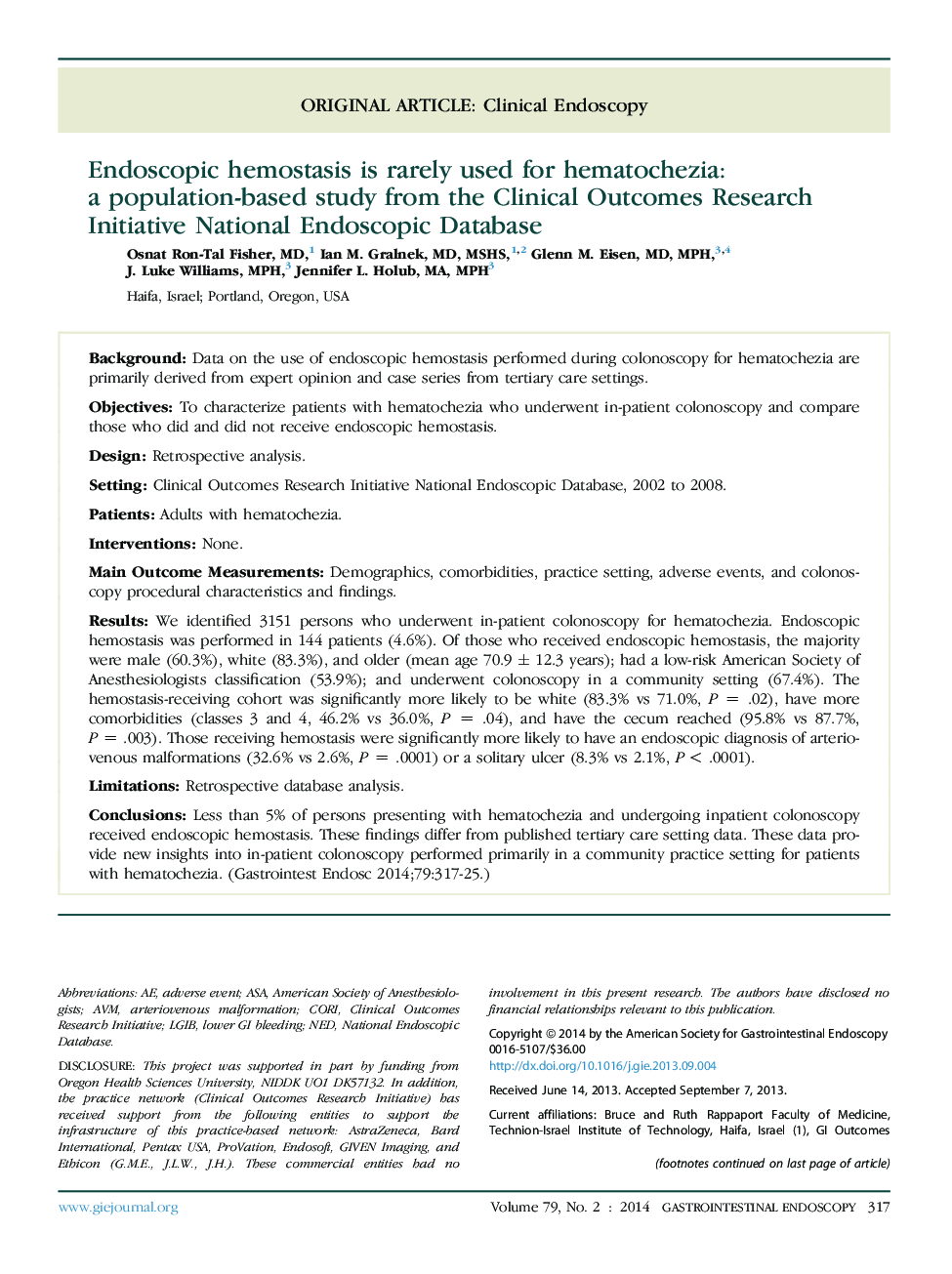| Article ID | Journal | Published Year | Pages | File Type |
|---|---|---|---|---|
| 3303559 | Gastrointestinal Endoscopy | 2014 | 9 Pages |
BackgroundData on the use of endoscopic hemostasis performed during colonoscopy for hematochezia are primarily derived from expert opinion and case series from tertiary care settings.ObjectivesTo characterize patients with hematochezia who underwent in-patient colonoscopy and compare those who did and did not receive endoscopic hemostasis.DesignRetrospective analysis.SettingClinical Outcomes Research Initiative National Endoscopic Database, 2002 to 2008.PatientsAdults with hematochezia.InterventionsNone.Main Outcome MeasurementsDemographics, comorbidities, practice setting, adverse events, and colonoscopy procedural characteristics and findings.ResultsWe identified 3151 persons who underwent in-patient colonoscopy for hematochezia. Endoscopic hemostasis was performed in 144 patients (4.6%). Of those who received endoscopic hemostasis, the majority were male (60.3%), white (83.3%), and older (mean age 70.9 ± 12.3 years); had a low-risk American Society of Anesthesiologists classification (53.9%); and underwent colonoscopy in a community setting (67.4%). The hemostasis-receiving cohort was significantly more likely to be white (83.3% vs 71.0%, P = .02), have more comorbidities (classes 3 and 4, 46.2% vs 36.0%, P = .04), and have the cecum reached (95.8% vs 87.7%, P = .003). Those receiving hemostasis were significantly more likely to have an endoscopic diagnosis of arteriovenous malformations (32.6% vs 2.6%, P = .0001) or a solitary ulcer (8.3% vs 2.1%, P < .0001).LimitationsRetrospective database analysis.ConclusionsLess than 5% of persons presenting with hematochezia and undergoing inpatient colonoscopy received endoscopic hemostasis. These findings differ from published tertiary care setting data. These data provide new insights into in-patient colonoscopy performed primarily in a community practice setting for patients with hematochezia.
